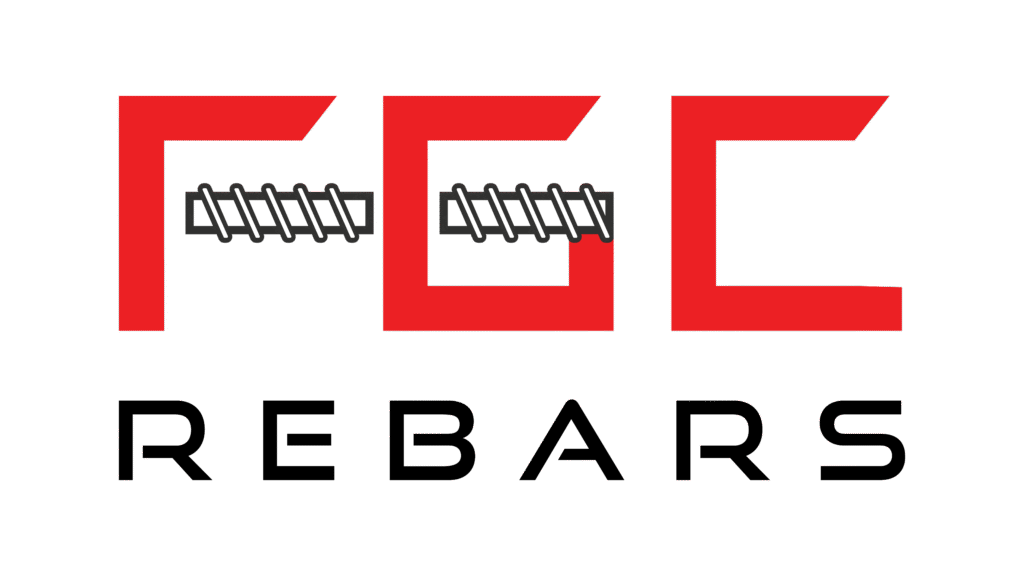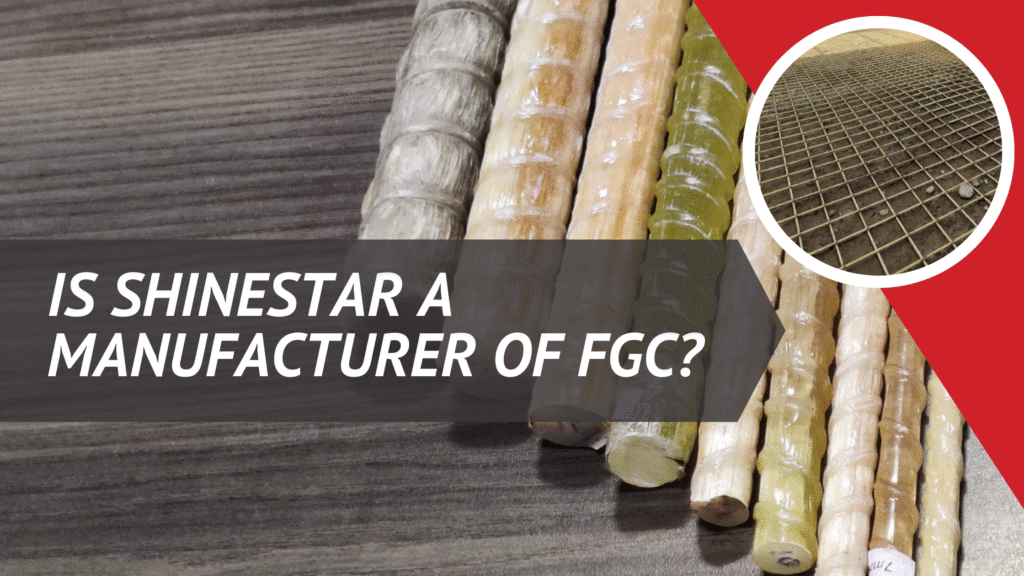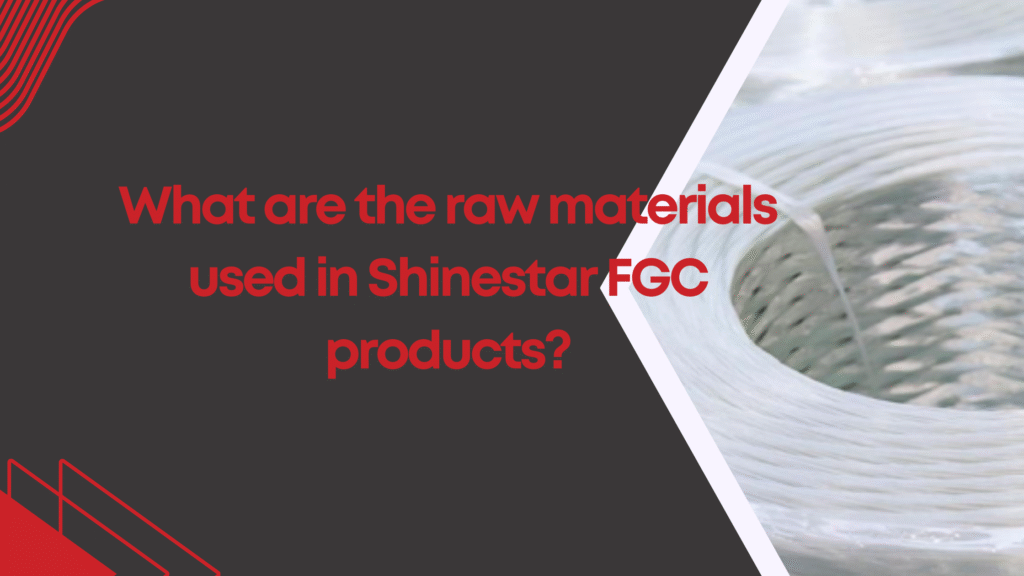Introduction FGC: The Problem with Steel
Steel has long been the backbone of modern construction. From homes to highways, it’s everywhere. But there’s one big issue—steel corrodes over time. Exposure to water, air, and chemicals causes rust, which weakens structures and leads to constant maintenance. This isn’t just a technical problem—it’s an environmental and

economic one.
Corrosion and Maintenance: A Hidden National Burden
In India, corrosion is not a small issue. Studies show that 4–5% of India’s GDP is lost every year due to corrosion-related damage and maintenance costs. That includes repainting, replacing rusted steel, labor, and downtime. All of these tasks not only cost money—they also create environmental pollution through CO₂ emissions, waste materials, and repeat energy consumption.
This is where FGC (Fibre Glass Composite) Rebar changes the game.

FGC Doesn’t Corrode – Ever
Unlike steel, FGC is 100% non-corrosive. It doesn’t rust, even in coastal areas, underground environments, or chemical-heavy zones. That means no need for anti-rust paints, no expensive coatings, and no frequent replacements.
By avoiding corrosion entirely, FGC helps reduce maintenance cycles, limits construction waste, and saves on materials and manpower. That’s better for the builder—and far better for the planet.

FGC Has Up to 70% Lower Carbon Emissions
When we talk about environmental impact, we have to talk about carbon emissions.During manufacturing, it has some percentage low carbon emissions Traditional steel production is energy-intensive and carbon-heavy. On top of that, every time steel corrodes and needs replacing, the cycle of production, transportation, and maintenance repeats—piling on more CO₂ into the atmosphere.
FGC, on the other hand, produces up to 70% less carbon emissions throughout its lifecycle compared to steel. Here’s how:
It’s lightweight (about 1/4th the weight of steel), so transportation requires less fuel
It needs no rust-proofing, which avoids emissions from paints and coatings
It lasts much longer, reducing the need for replacements
Less Waste, Longer Life
Using FGC helps cut down on construction waste. Since it doesn’t corrode or degrade over time, structures last longer without repairs. There’s also no chemical leaching into soil or water, unlike rusting steel which can contaminate environments over the years.
Longer life span = fewer demolitions = less raw material extraction and lower energy consumption.


A Smarter Choice for India’s Future
With rapid urban development and growing infrastructure needs, India needs building materials that are sustainable, durable, and cost-effective. FGC fits the bill. It not only supports green construction but also addresses the massive economic losses due to corrosion.
Switching to FGC isn’t just about better buildings. It’s about a better future—for the economy and the environment.
Conclusion: Make the Shift to FGC
If we want to build stronger, smarter, and greener, it’s time to look beyond steel. FGC rebar offers a long-term solution that is rust-proof, cost-saving, and environmentally responsible.
Whether you’re a builder, contractor, architect, or decision-maker—choosing FGC is choosing sustainability. Ready to switch? Choose FGC – the rust-free, eco-friendly future of construction.









